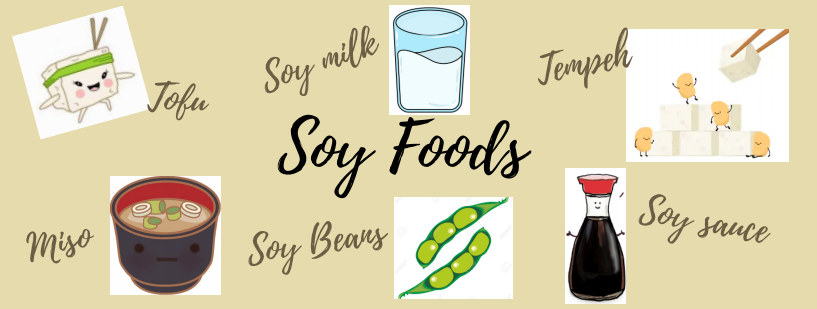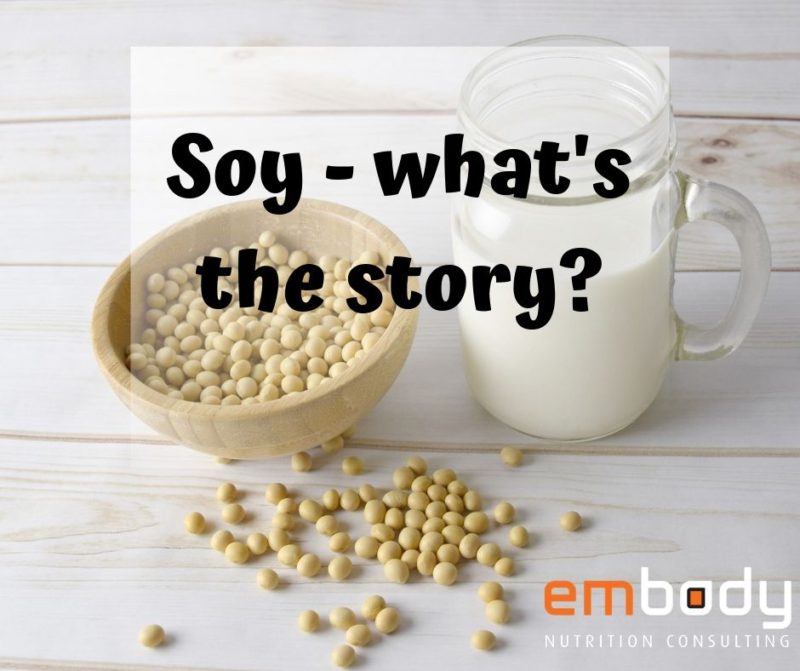When you think of soy what do you picture? Soy sauce?!
The most whole source of soy is in fact the soybean (or also known as edamame) and from this we can make many products such as, tofu, tempeh, soymilk, miso, soy sauce and soy protein.
Soy has many health benefits and is one of the few plant products that contain all the essential amino acids that our body needs to make it a complete protein source. This makes it a great vegan/vegetarian option!
Soy also contains:
- Carbohydrates which are fermented in our gut making it a prebiotic fibre (which helps feed our good gut bugs – how good!)
- Also has essential omega-3 and omego-6 fats which our body can only get from foods
- Rich in vitamins and minerals
So why has soy had a bad rap?
When it comes to soy, a certain compound that is normally under scrutiny is called isoflavones. Isoflavones are a chemical found in plants that have a similar structure to a hormone called oestrogen. Because of this many people have believed that soy will mimic the same effects of the hormone.
The research has proven that when looking at isoflavones in soy, they actually have the opposite effect to oestrogen and it does not have the same effect on our bodies as the hormone. So, without all the science jargon they do not have the same impact as a hormone and they also been shown to have anti-inflammatory and antioxidant properties which have many health benefits!
What are the health benefits of soy?
- Complete source of plant protein
- Low in carbohydrates and high in protein
- Great source of fibre that is good for our gut bugs!
- Reduce the risk of cardiovascular diseases and improve our heart health due to the cholesterol lowering ability of soy
- Having soy products apart of your diet can help you reduce your meat and saturated fat intake which in turn can have many heart health benefits
Can I consume too much soy?
Like any food – moderation is key! When choosing soy products keep in mind that it contains a compound called phytic acid which can stop the absorption of certain minerals and nutrients. However, phytic acid is deactivated when cooked or fermented. Therefore, cooking soy products or buying fermented sources are better options.
Soy may interfere with a drug used for hyperthyroidism; therefore, it is suggested not to consume high amounts of soy protein when taking your medication.
There are so many great sources of soy that can be enjoyed apart of your whole diet!


